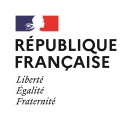As part of its monitoring of spending on green OATs, the Agence France Trésor is publishing today a new evaluation report on the environmental impact of public subsidies for combined transport, i.e., the use of different modes of transport for freight to promote energy efficiency.
Since the first green OAT issue in 2017, support for combined transport has been part of the eligible green expenditure envelope and has gradually received more support, rising from €30.5 million allocated in 2017 to €160.0 million in 2023.
The study published today highlights the importance of promoting combined transport, particularly in the light of France's commitment to achieve carbon neutrality by 2050.
This new report provides an overall analysis of the climate and environmental impact of three public subsidies for combined transport. It assesses the reduced domestic tax rate on final consumption of electricity, transhipment aid and wagonload aid. It also quantifies the annual greenhouse gas emissions avoided for 200 ktCO2eq, between 10 and 30 ktCO2eq and 30 ktCO2eq. Alignment with the taxonomy criteria was also assessed at 99%, 68% and 70% respectively for the three subsidies in question.
Manuel Pulgar-Vidal, Head of Climate and Energy at WWF International and Chairman of the Green OAT Evaluation Council, welcomed the outcome of this work: “The analysis of public subsidies for combined transport provides an assessment of the different decarbonization levers financed and their significant impact on the reduction of greenhouse gas emissions, while appreciating the high degree of alignment of the three subsidy schemes with the European taxonomy.”
Antoine Deruennes, Chief Executive Officer of Agence France Trésor, added: "Through the financing provided by the green OAT issuance programme, support for combined transport is having a tangible impact in the fight against climate change. This new report helps to ensure confidence in the green bond market, thanks to the high level of transparency on the environmental impact of the green spending it facilitates.”
This report, produced by IGEDD (Inspection Générale de l’Environnement et du Développement durable), has been supervised by the Green OATs Evaluation Council, which gather independent experts in the fields of green finance and environmental policy.
Background
On 24 January 2017, AFT launched the first green sovereign bond (Green OAT) in benchmark size (initially €7 billion): the OAT 1.75% 25 June 2039. In doing so, it confirmed France’s leading role in meeting the ambitions set out in the Paris Climate Agreement of December 2015.
In addition, on 16 March 2021, AFT launched a second Green OAT, the OAT 0.50% 25 June 2044, and innovated, on 25 May 2022, with the launch of the first ever sovereign green bond linked on the inflation, the OAT€I 0.10% 25 July2038. Finally, in January 2024, AFT launched a fourth green OAT, the OAT 3,00% 25 June 2049. The total outstanding amount of these four green securities is therefore currently €75.98 billion. These issuances, governed by the same framework document, are used to fund eligible green expenditure, contributing to France’s environmental and climate policy.
This green expenditure must meet one of the four objectives of the Green OATs: i) combatting climate change, ii) adapting to climate change, iii) protecting biodiversity and iv) reducing pollution. To meet these objectives, the programmes funded by the Green OAT belong to six main sectors: building, energy, transport, living resources, pollution and adaptation.
When the first Green OAT was initially issued, the French government made a commitment to report on the environmental impact of this expenditure, which helps to set high standards within this market. The process for conducting these impact assessments is supervised by the Green OATs Evaluation Council.
Chaired by Manuel Pulgar-Vidal, former Minister of the Environment of Peru, President of COP20 and the Global Leader of Climate & Energy at WWF, the Green OATs Evaluation Council is currently composed of six other independent experts:
- Mats Andersson, Vice-Chair of the Global Challenges Foundation, Chair of the Portfolio Decarbonization Coalition and former CEO of AP4, Sweden’s fourth national pension fund
- Nathalie Girouard, Head of Division for Environmental Performance and Information in the OECD Environment Directorate
- Mike Holland, independent consultant
- Karin Kemper, former Global Director for Environment, Natural Resources and Blue Economy at the World Bank
- Rana Roy, independent consultant
- Thomas Sterner, professor of environmental economics at the University of Gothenburg
In addition to this list, there are two observers:
- Sean Kidney, co-founder and CEO of the Climate Bonds Initiative
- Nicholas Pfaff, Senior Director of Market Practice and Regulatory Policy at the International Capital Market Association
The Green OATs Evaluation Council defines the terms of reference and the programming of the environmental impact assessment reports for eligible green expenditure funded by the French Green OATs. It also gives its opinion on the quality of the impact assessment reports and the relevance of the results. All of these documents are published on the AFT website. The Secretariat of the Evaluation Council is provided jointly by the CGDD and the Directorate General of the Treasury.
Documents
Impact Assessment Report on combined transport subsidies
Council’s opinion on the Impact Assessment Report on combined transport subsidies
Terms of reference of the Report on combined transport subsidies
Contact :
01.40.04.15.50 – contact@aft.gouv.fr

